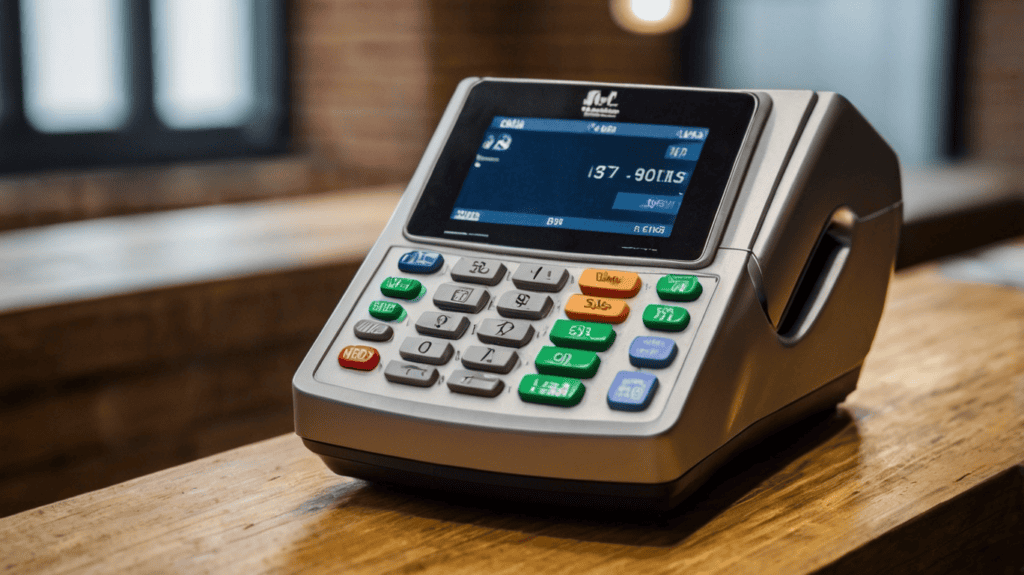
By Ken Bianchi August 28, 2025
A merchant account is a requirement for all Indiana based businesses who accept credit and debit cards. It is the backbone for transaction processing, allowing money to transfer seamlessly from customer to business. As providers became noticeably competitive but, many businesses advertise a merchant rate guarantee— a guarantee to match or beat competitor’s transaction fees. On the surface, these guarantees may appear to be an easy means of reducing costs, but the situation may be quite different.
Not all merchant rate guarantees are equal. A number attempt to lure businesses through advertising low rate while failing to mention statement fees, PCI compliance fees, or contract fees. Such hidden aspects can be critical for the long-term profitability of Indiana businesses, small retailers, restaurants, and developing eCommerce.
The key lies in knowing how to assess such guarantees beyond the surface. While costs may not be directly comparable, examining the terms, the structure of the transaction, and the fine print on each offer can help businesses avoid expensive errors. When conducted properly, merchant rate guarantees allow Indiana-based businesses to select the payment processor that positions their business to reach its financial and operational objectives.
What Is a Merchant Rate Guarantee?
Merchant rate guarantee means payment providers promise to match or beat processing rates offered by the competition. In such a competitive payment business like today, especially a market such as Indiana, full of small businesses and retailers, these guarantees are an incentive to entice new customers and convince them that they are receiving the lowest possible price point.

While many providers see these guarantees as demonstrating transparency and customer focus, it is essential to question what these mean. All guarantees don’t relate to locked-in rates. Rather, most providers retain the option of adjusting their fees based on where they fall on the spectrum of volume, card type, or risk profile, while at the same time stating they will “match” the offer from some other company. In other words, what sounded like a business competitive promise could actually result in a rise over time in the effective rate.
Advertised rates are often couched in simple marketing language “lowest rate in Indiana” or “we’ll beat any competitor’s rate” are common expressions. But, it leaves some costs—like monthly service charges, PCI compliance fees, statement fees, or surcharges on cross-border payments out.
But, it does present an important point for Indiana businesses: a merchant rate guarantee can offer benefits, if the terms are spelled out. To avoid bumps in the road down the line, carefully read the agreement and ask the provider precisely what is or is not included.
The Payment Processing Landscape in Indiana
Indiana has a very diverse economy, including everything from mom and pop shops and specialty retailers to clinics and eCommerce storefronts. All of these businesses depend on seamless and reliable payment processing for their cash flow and customer experience. The surge in demand has made the payment processing market in Indiana competitive with banks in the local areas, regional credit unions, independent sales organizations, and national providers all providing solutions.

Local banks frequently stress the importance of relationships and local service, while national providers feature technology and acceptance. On the other hand ISOs are resellers of services from larger processors, which they customize for specific industries such as hospitality or healthcare. Over the last few years, entries by fintech companies have also added to the mix in Indiana, with cloud-based, mobile payment providers appealing to the flexible needs of today’s businesses.
One prominent development is the combination of mobile and cloud-based payment applications that enable Indiana businesses to accept payments anywhere, track data in real-time, and/or adjust accounting or inventory systems based on transactions. This competitive environment makes merchant rate guarantees an attractive selling point but also a complicated one, since each type of provider may structure these guarantees differently.
Key Elements of Merchant Rate Guarantees
Businesses in Indiana should assess merchant rate guarantees by digging deeper that mere headline promise of “lowest rates” to see what that guarantee really assessed. The first variable to consider is transaction fees, which encompass Interchange imposed by the card networks, processor mark-ups, and assessment fees. Although the interchange rate is fixed, the markup that the provider negotiates can differ greatly, and often that markup constitutes the basis of the guarantee.

The other element is monthly service charges, potentially comprised of PCI compliance fees, statement fees, or minimum monthly fees. Such costs are seldom mentioned in advertising, but they can accrue rapidly and erode the value of a purported guarantee.
Equipment costs are a prominent variable as well. Providers may require that businesses purchase or lease POS terminals or card readers. Leasing initially appears affordable than outright funding equipment purchase. A true merchant rate guarantee would specify inclusion of equipment charges.
Contract stipulations are equally as important. Multi-year contract signing, auto-renew and early termination cancellation fees can tie companies into contracts that provide no saving despite lower transaction costs. Indiana companies should scrutinize if this is a guarantee throughout the contract or just for an introductory period.
Finally, let us consider the guarantee’s scope. Some only reimburse the transaction fee, but not monthly fee, PCI fees or cross-border surcharge. Some claim to, “rate match” others but only for certain card types. The small print can greatly affect the true value of the guarantee, requiring firms to review offers line by line rather than trusting marketing information.
Common Misconceptions About Rate Guarantees
When Indiana business leaders hear the words “guaranteed lowest rate,” they consider that they would naturally pay the lowest possible rate for credit card processing. This is not always true unfortunately. Merchant rate guarantees are sometimes not completed guarantees that apply only to some elements of a price structure, for instance, the processor mark-up.

For instance, a provider can have the same or lower transaction rate than some other firm but charge more in batch fees, charge back fees, or account maintenance fees. In the long term, these indirect costs can easily exceed the benefits that accrue from any promotional savings. Another myth is that guarantees are for all industries. Businesses that are considered high-risk, such as travel-related, a subscription service, or CBD retailer, may be denied guarantees altogether or with limitations.
Understanding the distinction between interchange fees and markup fees is also essential—whereby interchange fees are fees that card networks establish and that a processor can’t negotiate. Many of these guarantees apply to markup but not interchange. Some companies do not realize that and could be thinking that provider had trimmed all of to their expense.
In summary, rate guarantees have their advantages; but, they do not afford complete assurance of incurring the lowest overall cost. Merchants in Indiana need to scrutinize the fine print and calculate the actual effective rate when deciding.
Conclusion
On the surface, merchant rate guarantees may also appear to be a quick way for businesses in Indiana to save some money. A “guaranteed lowest rate” usually applies to only a piece of your fees, and omits many relevant expenses from PCI compliance and chargebacks, and any equipment leases. Thus, blind trust in a guarantee without looking into its details may incur larger costs in the long run.
This means it’s best not to get wrapped up in marketing terms — examining actual transaction data and fees associated with providers is the best way to compare them. When businesses adhere to such a framework—reviewing contract terms, looking at the guarantees offered, and calculating effective rates—they can avoid unwelcome surprises while locking in sustainable savings.
If you own a small retail store in Indianapolis, a family-owned restaurant in Bloomington, or an eCommerce store with customers across the globe, you need to know what merchant rate guarantees are all about. The right provider can also offer you transparency, fair terms, and scalable solutions as your business grows—not just lower rates.
Ultimately, merchants in Indiana who are diligent in reviewing guarantees will safeguard their profits and enjoy smoother, more predictable payment processes.
FAQs
1. Are merchant rate guarantees always worth it for Indiana businesses?
Not always. Guarantees can help reduce processing costs, but only if they apply to all fees, not just transaction markups.
2. Do guarantees cover interchange fees?
No. Interchange fees are set by card networks and are non-negotiable. Most guarantees only cover the processor’s markup.
3. How long do merchant rate guarantees last?
It varies. Some are promotional for the first year, while others renew automatically. Always check contract terms for expiration dates.
4. Can high-risk businesses in Indiana benefit from rate guarantees?
Often not. Many providers exclude high-risk industries such as travel, adult, or CBD from their guarantee programs.
5. What’s the best way to compare merchant rate guarantees?
Use your actual transaction data to calculate the effective rate across multiple providers. This ensures an apples-to-apples comparison of true monthly costs.